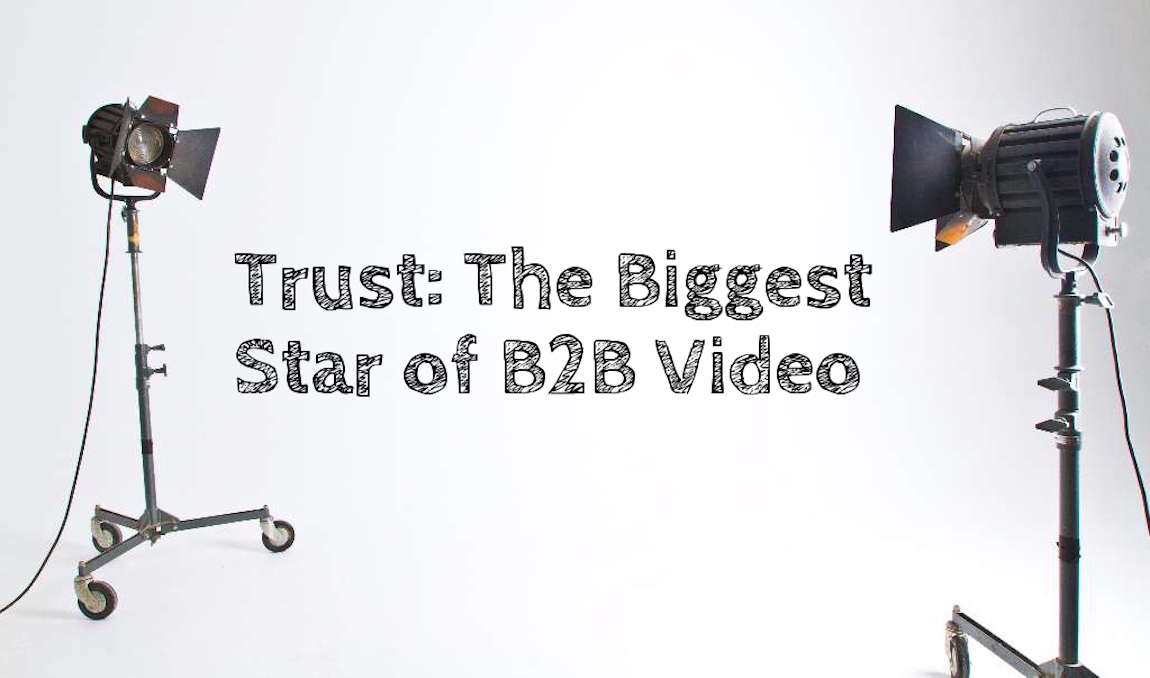Using B2B Video Content To Boost Understanding and Trust in Your Products
by Ben Quinn
How the Brain Processes Video Content
Sell sheets are nice. But when you want to tout your product benefits and truly engage your customers, look to B2B video content. Why? Our brains are wired to understand stories better than bulleted facts. According to a study done by MIT, the brain can process images viewed for as little as 13 milliseconds. By contrast, text is processed at a much slower rate. Using B2B video content allows you to get your message across much faster. Consider why the most successful presentations we experience in business are full of visual information.
An Example of an Effective B2B Product Demo Video
This video from Milwaukee is a good example of a product demonstration video. It takes all the selling points of their M18™ ForceLogic™ Commercial Crimper and Cable Cutter and brings them to life. Hearing and seeing product specs from the mouths of people who use the products is much more effective and memorable than distributing text that promises results, but gives no visual confirmation of the results.
Using Video for Search and Social
So our brains are wired to understand video better than text alone, but a video is only as effective as the number of eyes that see it. When optimized correctly, video can help increase your search rankings. An investment in video also pays off by giving you interesting content for all of your social media outlets. You are more likely to gain traction and engagement by posting a relevant video than a simple link to, say, your new 30-page product catalog.
Video Content Is Like Pizza – Even When It’s Bad, It’s Still Pretty Good.
Your videos do not need to be the next great feature films. Getting meaningful content to the viewer is much more important than the quality of the recording. Research shows that people are more put off by videos that don’t explain a product or service clearly than by poor quality design. That’s not to say you shouldn’t make a piece worth watching. But relatable content trumps Hollywood polish.
Check out this video series created by etrailer.com. They don’t use expensive on-screen talent or high tech animations, just clear useable information that is super helpful if you are looking to install a trailer hitch on a 2015 Nissan Frontier. They set up a simple logo backdrop and created hundreds of videos with different truck models, so that when a potential customer searches for “how to install a trailer hitch on my [your vehicle here],” they are the first option that comes up. This video series allows them to both build awareness of their product offerings, and give customers confidence in how easy it is to use their products. This method of marketing also strengthens the sense of trust with the company. The eyes don’t lie; people love to see products in action instead of simply taking the company’s word for it.
In conclusion, there are many benefits to making video content a key part of your marketing strategy. It promotes greater understanding of your product offering while also building trust in your products and brand in general. With video recording devices and internet platforms being more accessible than ever before, a small marketing budget can still produce large returns with this dynamic medium. Put some money behind these videos, and you have a platform that can both elevate your brand and leave your potential customers with a memorable experience.
Continue Reading